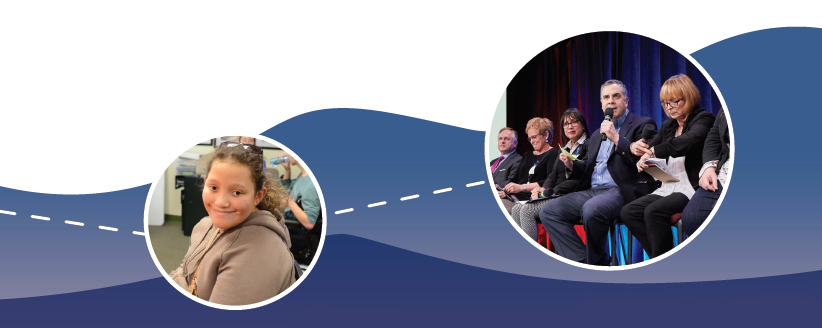AFB Employment Summit Creates Connections, Ideas, and Action Plans
By all accounts, AFB’s inaugural Employment Summit in May was a successful day for everyone involved. Held in conjunction with the New York State Commission for the Blind, the summit was generously hosted by Google at the company’s New York City offices.
AFB plans to hold two to four summits each year over the next few years at locations across the United States. The goal is to increase hiring and career advancement opportunities for people who are visually impaired by fostering dialogue and learning, and by bringing together high-level stakeholders, including state vocational rehabilitation agencies, nonprofits involved in career training and placement, corporations with a commitment to disability inclusion, foundations that prioritize disability employment, and leaders with visual impairments. At the end of each daylong summit, key actions will be recommended to break down barriers, open recruiting channels, and create employment opportunities. AFB also intends to set up online communication channels, creating a forum for participants to continue sharing resources and solving problems after each summit.
“I believe we achieved the goal set by AFB President and CEO Kirk Adams to ‘leave with a commitment to hire’—as well as a commitment to follow up, which will be key to achieving our goals,” says Brian S. Daniels, director of the New York State Commission for the Blind.
Zak Turner, who is visually impaired and works as a healthcare consultant, sat on a discussion panel about recruitment and hiring with sighted human resources personnel—an example of how the summits will bring the voices of people with vision loss into the conversation.
“I do interviewing and hiring as part of my job, but I also shared my story of how I was able to continue to be successful after losing my vision,” Turner says. “I thought it was a great summit because we need to bring awareness to companies to help people learn and grow in their careers.”
AFB Chief Knowledge Advancement Officer George Abbott, who coordinated the summit, describes the inaugural event as “a launching pad,” both for future summits and for the larger goal of improving employment opportunities for people who are blind or visually impaired.
“We built relationships and trust, and what’s key now is to continue connecting the participants to collaborate and take action on the issues we’ve identified as barriers to hiring and career advancement,” Abbott says. “It was really an exhilarating day.”
